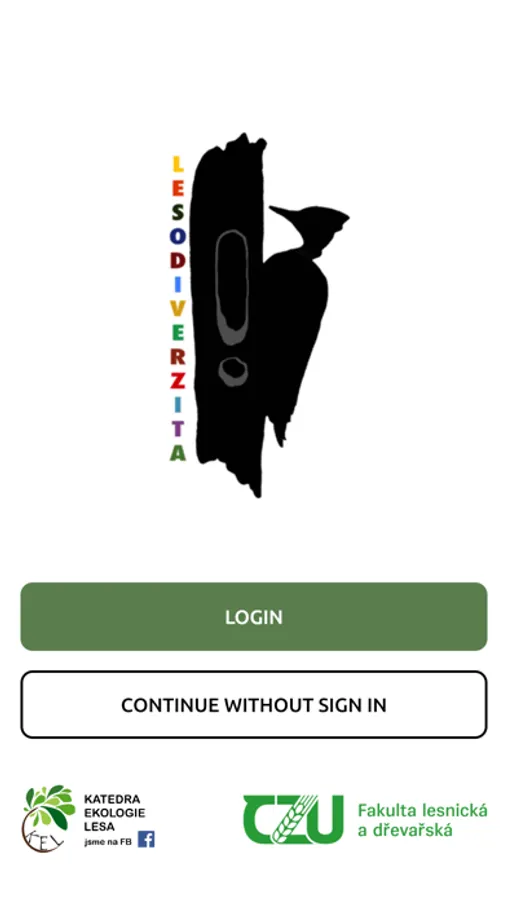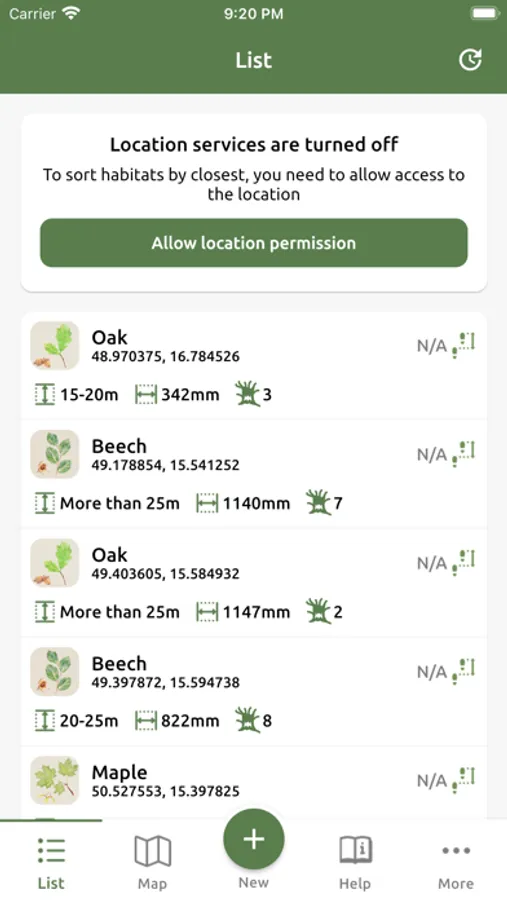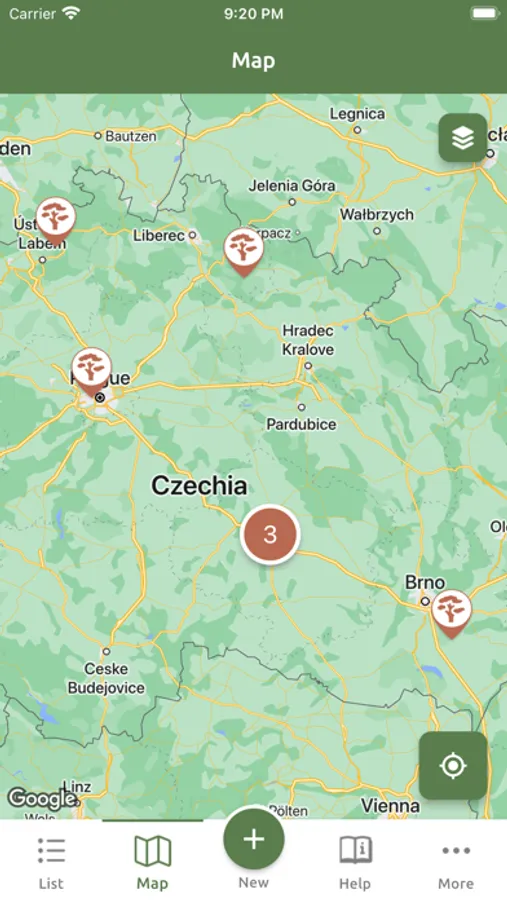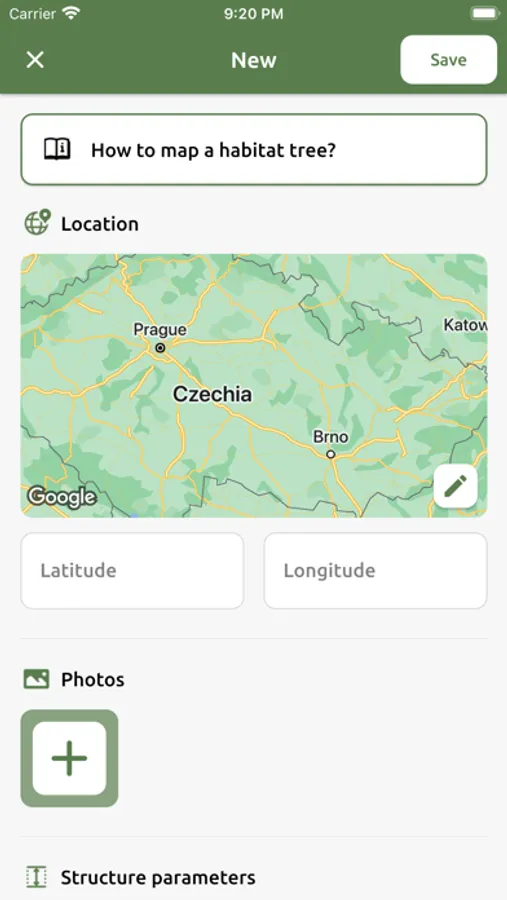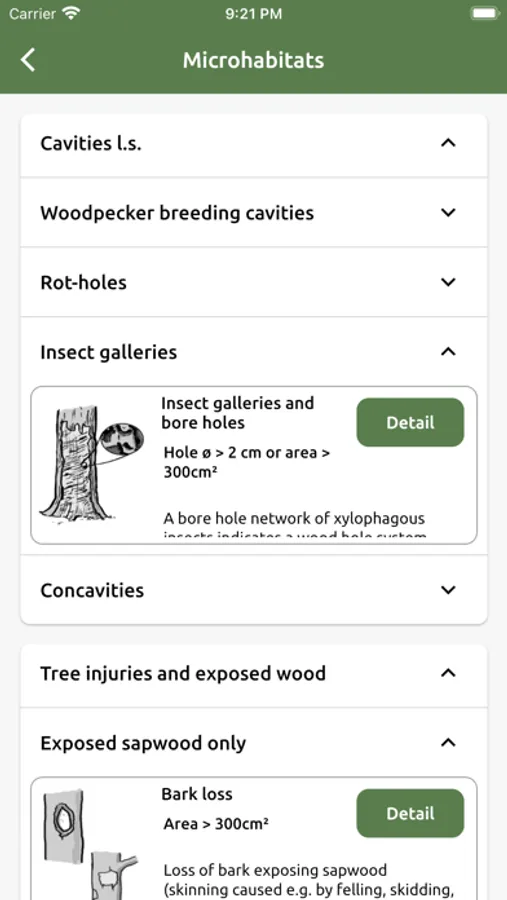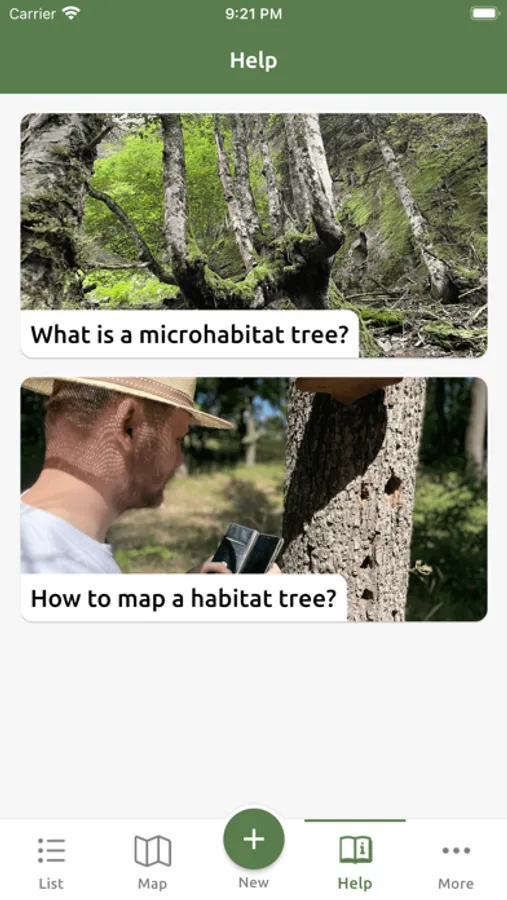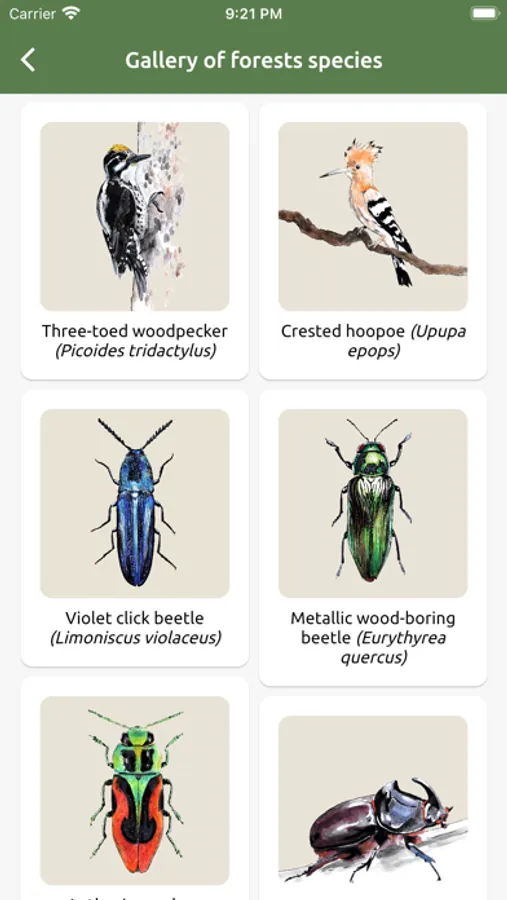About Forest diversity
The aim of this mobile application is to create an online database of habitat trees that are important elements supporting forest biodiversity. Such elements are based on data collection carried out by qualified institutions as well as by the members of public interested in nature and its conservation; the potential to use data for scientific purposes applies in both cases. If we were able to map larger areas, point records could be used to, for example, model the occurrence of species bound to deadwood. The collected data shall contribute towards spreading the awareness regarding the importance of microhabitat trees for biodiversity protection of a great proportion of endangered species, the necessity of their protection, and required responsible behaviour in their vicinity. All this is necessary, and it is also an important prerequisite for the current presence of these valuable trees in the landscape as well as in the urban environment.
The Lesodiversita application allows both registered and unregistered users to map habitat trees and thus contribute towards the habitat tree database creation. When saving a habitat tree, the application requires the user to determine the GPS position of the tree, take or insert a photo(s) of it, record its thickness, height, species as well as to fill in the so-called microhabitats that occur on the habitat tree. Microhabitats are, for example, cavities, cracks, fungi, lichens, dead parts of the crown or flowing sap. The complete database of microhabitats, which is used by scientists, is part of the application. The application also includes a gallery of forest species of organisms that use the habitat trees during certain stages of their lives. This gallery will be continuously updated. The habitat trees database can display individual habitat trees within the database with all their parameters. The application database is also connected to the web portal, which provides the user with additional functions and information related to this project.
The Lesodiversita application allows both registered and unregistered users to map habitat trees and thus contribute towards the habitat tree database creation. When saving a habitat tree, the application requires the user to determine the GPS position of the tree, take or insert a photo(s) of it, record its thickness, height, species as well as to fill in the so-called microhabitats that occur on the habitat tree. Microhabitats are, for example, cavities, cracks, fungi, lichens, dead parts of the crown or flowing sap. The complete database of microhabitats, which is used by scientists, is part of the application. The application also includes a gallery of forest species of organisms that use the habitat trees during certain stages of their lives. This gallery will be continuously updated. The habitat trees database can display individual habitat trees within the database with all their parameters. The application database is also connected to the web portal, which provides the user with additional functions and information related to this project.
